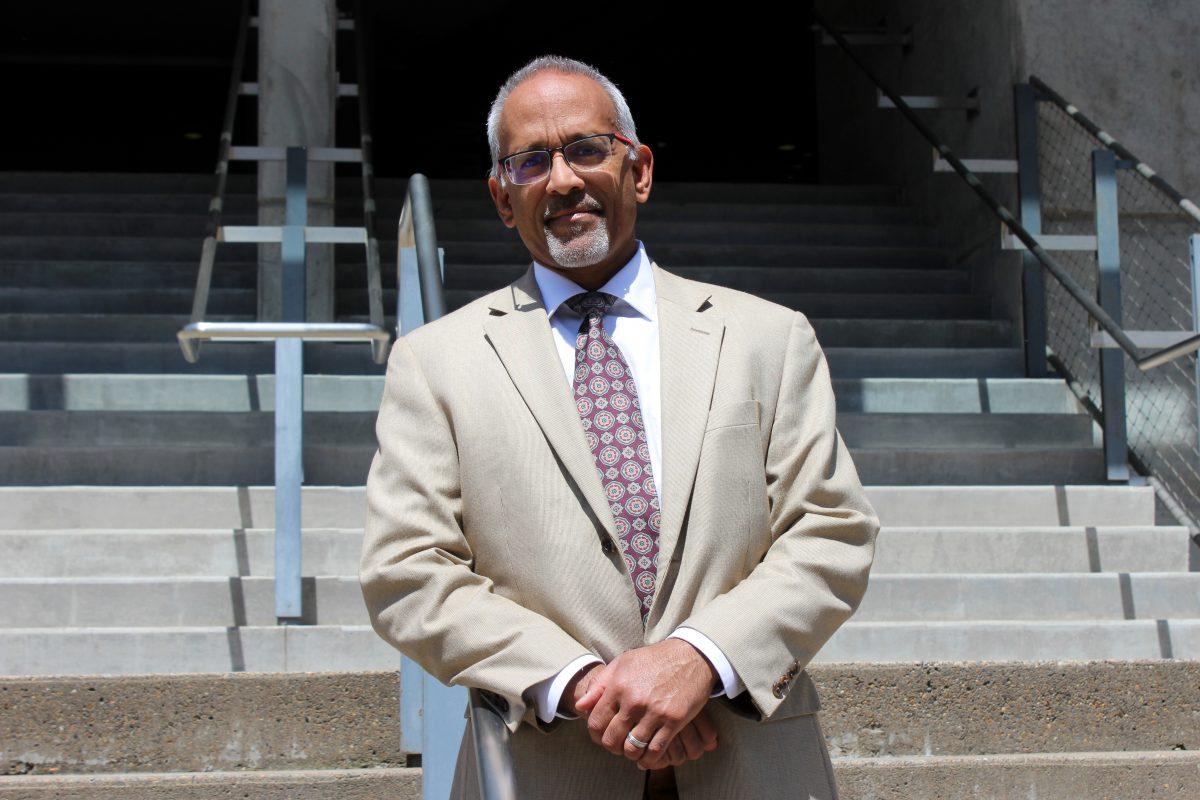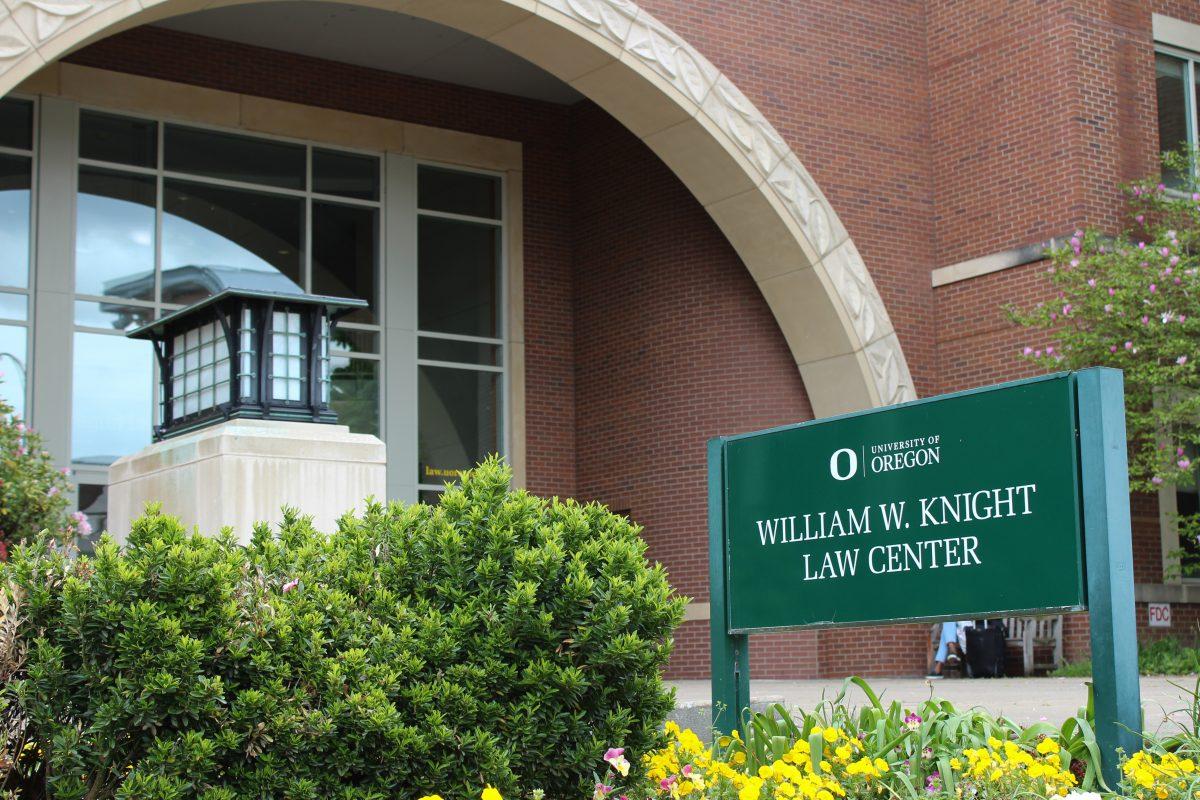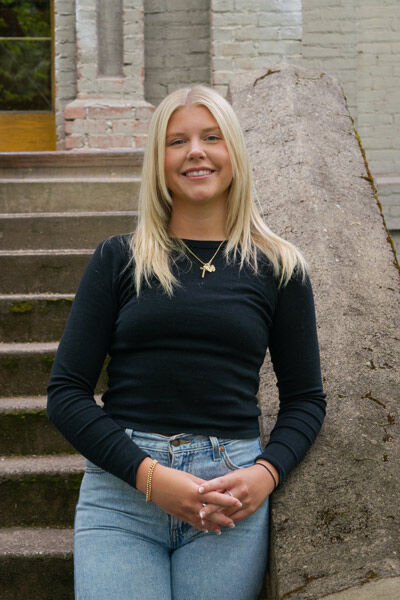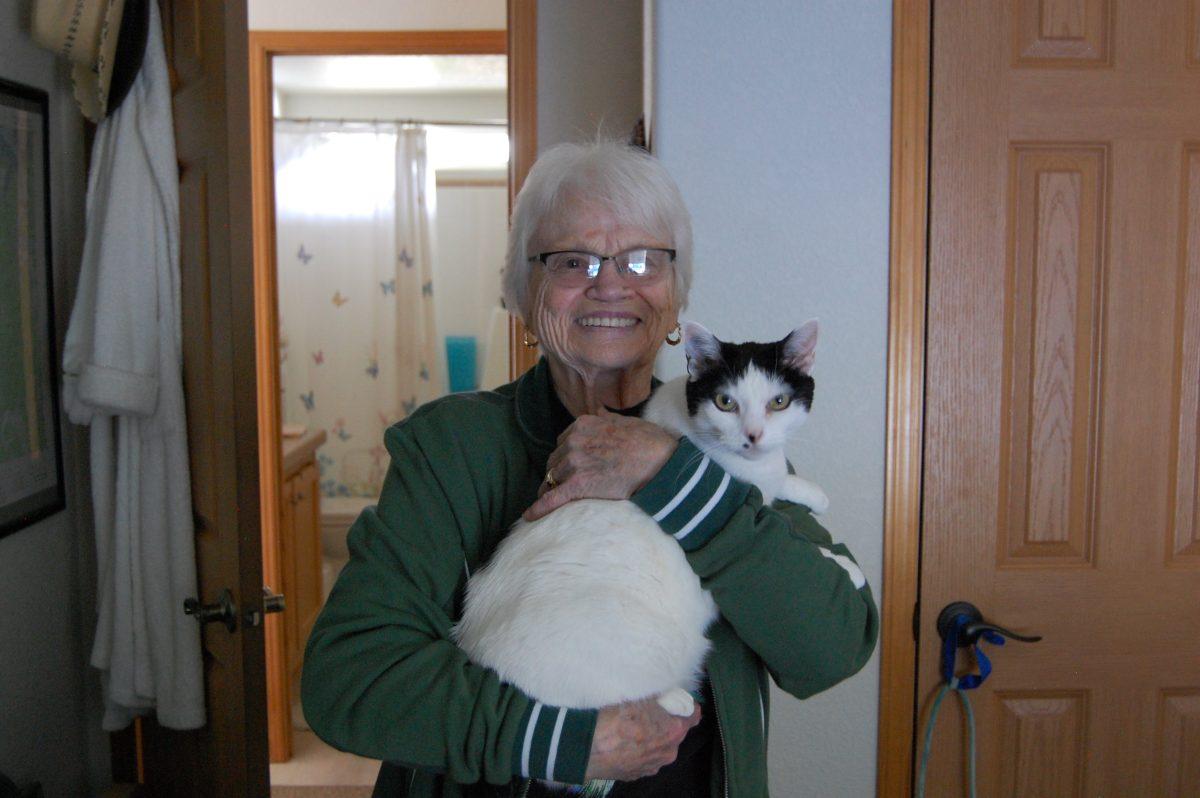Sticking out like a sore thumb between a Whole Foods and a bank, a chrome federal courthouse sits stalwart. Inside, security guards with stern faces patrol the maze of offices and public rooms. And in a fifth floor office is a man who has no idea how he got there.
Seated in a leather chair, Mustafa Kasubhai sports a welcoming smile that mediates his commanding voice. He is the first Muslim American federal magistrate judge and an evangelist for gender identity rights in the courtroom.
Kasubhai graduated from the University of Oregon in 1996 with a law degree and a feeling of estrangement.
“Law school was an interesting experience for me,” Kasubhai says, “because I felt like an outsider in the law.”
There are 4.5 million Muslims in the United States, with a growing population that has increased by 1.9 million from 2010 to 2020. However, there is a distinct lack of Muslim American identifying workers in the legal system. In a 2017 study, scholars were unable to find any Muslim federal judges. The UO Office of Public Records was unable to provide data on the religious affiliations of UO School of Law students, specifically.
Kasubhai is a first generation American. He grew up in San Fernando Valley, which has a predominantly white population.
Kasubhai was shown a foreboding perspective of the government by his Indian immigrant parents.
“My parents grew up at a time in India where you had to be cautious around government officials, police, judges and lawyers,” Kasubhai says. “Back then, you’d have to bribe people or they would threaten some kind of extortion.”
Yet Kasubhai was driven to pursue social justice because he couldn’t stand to see bullies pick on vulnerable people. Once he entered law school, however, he found they weren’t discussing the matters of social justice and inequity that had spurred his passion for law. Instead, Kasubhai found law school tended to emphasize success as working in a big law firm or clerking for a judge.
Despite graduating from the UO law school in the summer of 1996, Kasubhai didn’t take the bar.
“Law school wasn’t a place that fed my passion for social justice; in some ways, I think it kind of muted it,” Kasubhai says.
He says he remembers many of his BIPOC peers leaving for Portland or other states they felt represented them better than Eugene. But Kasubhai never left Eugene in search of a Muslim community, saying he was used to the isolation.
Kasubhai took a job working as a reference librarian at the UO law school, feeling discouraged. However, while surrounded by law texts and common people researching law, Kasubhai’s passion was reignited.
“People were coming in to do their own law research,” Kasubhai says. “I realized that there was space for lawyers who wanted to represent everyday people.”
After passing the bar in 1997, Kasubhai pursued a job as a plaintiff attorney in Klamath Falls, Oregon.
Klamath Falls is a small rural area with a population of 22,062 people. According to the American Bar Association, “There are 1.3 million lawyers in the United States, but they are mostly concentrated in cities, while many small towns and rural counties have few lawyers.” These areas are known as “legal deserts.”
In this legal desert, Kasubhai was able to satisfy his interest in social justice by giving the opportunity of legal representation for people that were injured. However, he quickly learned there wasn’t much to change in this field and faced microaggressions from other lawyers and from judges.
“They would compliment my lack of an accent,” Kasubhai says, “or refer to me as ‘one of the good ones.’”
Kasubhai decided to close his practice in sight of a job where he could have a better chance of creating social justice.
Yet, while trying to back out of the legal arena, an opportunity to become a board member at the Oregon Workers’ Compensation Board opened.Here, Kasubhai was able to provide social justice by enforcing laws that protected workers.
Recognized for his efforts, federal judges nominated Kasubhai to be the first Muslim American federal magistrate judge in 2018. Kasubhai was shocked to receive this title in Oregon, a state that was founded on laws aimed to exclude BIPOC individuals. He believes someone should’ve come before him, especially in states with more predominant Muslim representation, like New York or New Jersey. He wishes that, instead of people celebrating him as the first, they were celebrating the 50th or the 100th.
Mariam Hassan, a Muslim UO undergrad student working to become a lawyer, first met Kasubhai at an Oregon Muslim Bar Association (OMBA) event. Hassan remembers his presence commanding the attention of the room anytime he spoke.
“I was so impressed with everything he had,” Hassan says. “I wanted to be him.”
In the fall term of 2022, Hassan was given the opportunity to present a case in front of Kasubhai for one of her law classes.
“When I first met him, I was intimidated because he was powerful. But when I went up to him, he was completely different,” Hassan says. “He’s enthusiastic about helping everybody, especially younger Muslims, to reach the position he’s in.”
Kasubhai says being the only Muslim American in any given room often left him questioning who would advocate for him in those spaces. That feeling of being alone is something Kasubhai doesn’t want others to feel and why he works to help others.
It’s also what led him to tackle the issue of pronouns in his courtroom.
According to Kasubhai, it is customary to address people in the courtroom by Miss or Mr.; however, these honorifics often come from assumptions.
Kasubhai felt as though people who were nonbinary or transgender were not given the space to present their best self in the courtroom, as they were in fear of how people would judge their gender identity. Therefore, to make his courtroom more accessible, Kasubhai has begun to request that people provide him with their honorific so he can correctly identify them.
Federal Magistrate Judge Allison Claire has worked on four panels with Kasubhai to educate other lawyers and judges about the importance of pronouns.
Claire, who was inspired to do work surrounding pronouns due to her experience as a lesbian woman in the legal system and her two nonbinary children, first found out about Kasubhai when she saw his article Pronouns and Privilege written in the Oregon Women Lawyers journal.
Claire says Kasubhai has been an inspiring partner while advocating for marginalized groups.
“He balances his own great intellectual rigor and commitment to the job we perform with a very open-hearted and personally authentic way of relating to other people and expressing his own values,” Claire says.
Kasubhai, while faced with challenges and marginalization, has remained steadfast in his goal of attaining social justice for those around him. He believes there is no finish line, but rather, an enduring commitment to the struggle.
“Society is only as civilized,” he says, “as our capacity to appreciate and support those who are the most vulnerable.”
In 1996, Kasubhai walked into the William W. Knight Law Center as it started and continued to be a source of success in his life.











![[Photo Courtesy of the Lara Family]
Ruben embraces his beloved childhood goat, Katrina.](https://ethos.dailyemerald.com/wp-content/uploads/2025/05/katrina-1-1060x1200.jpg)


